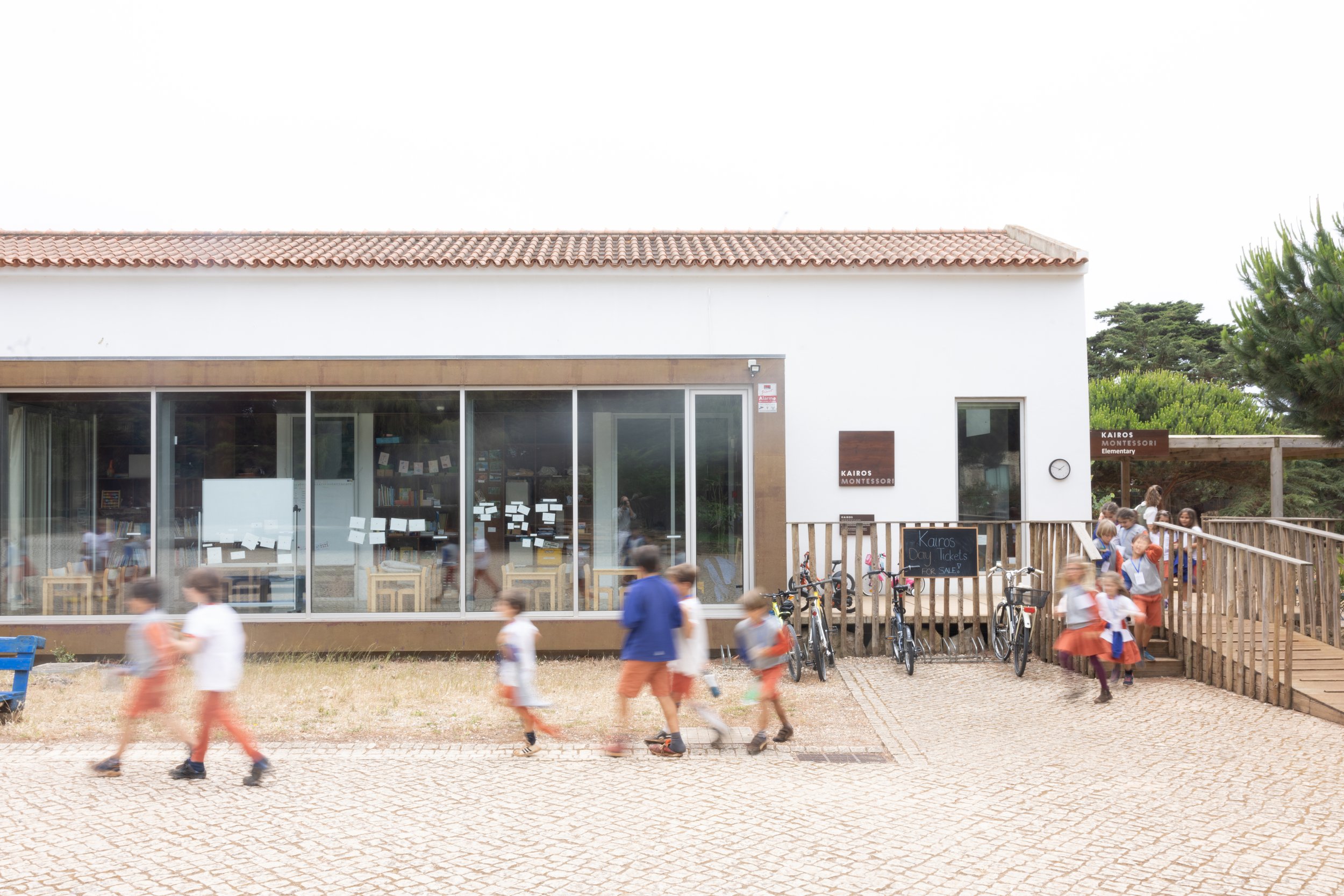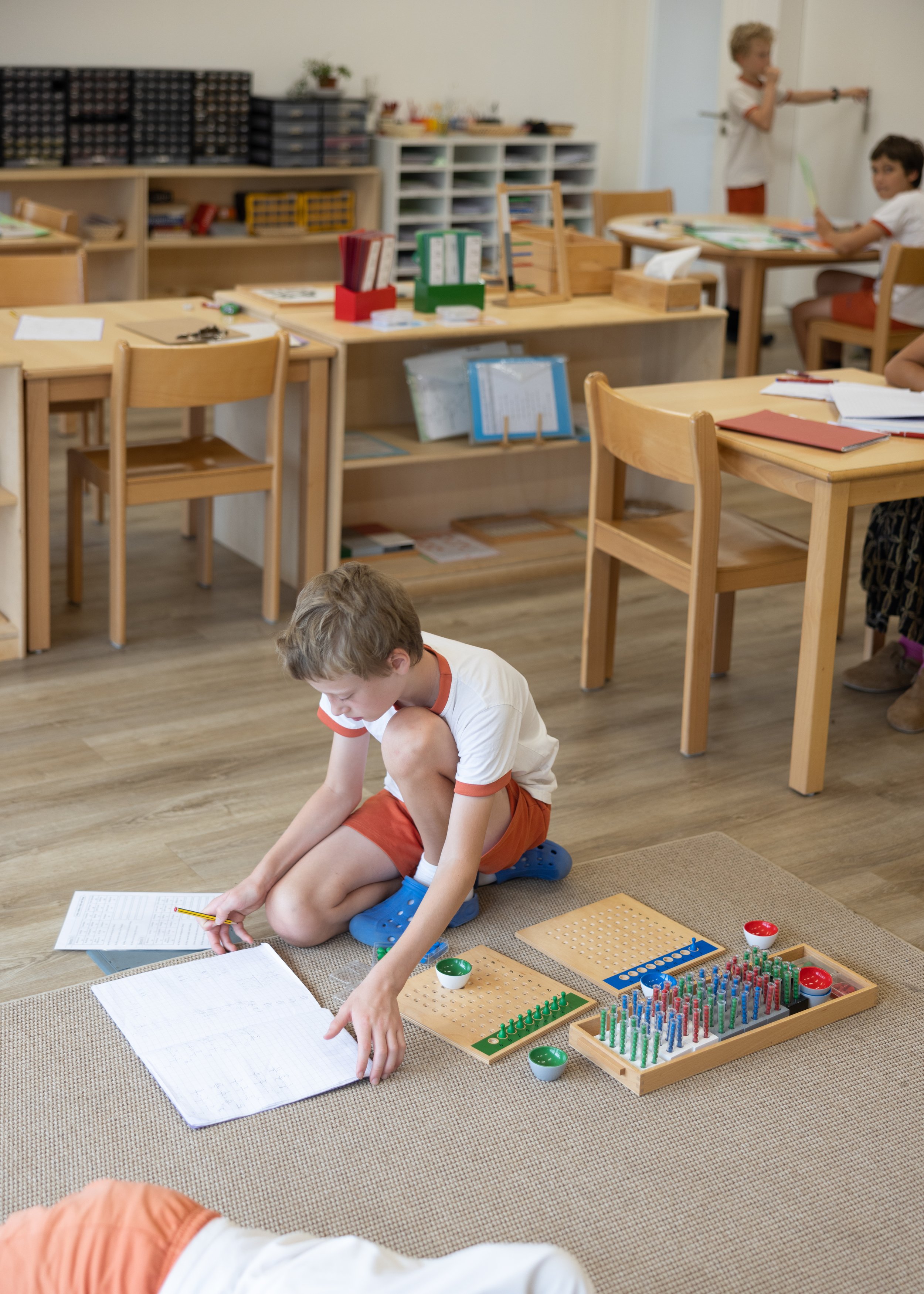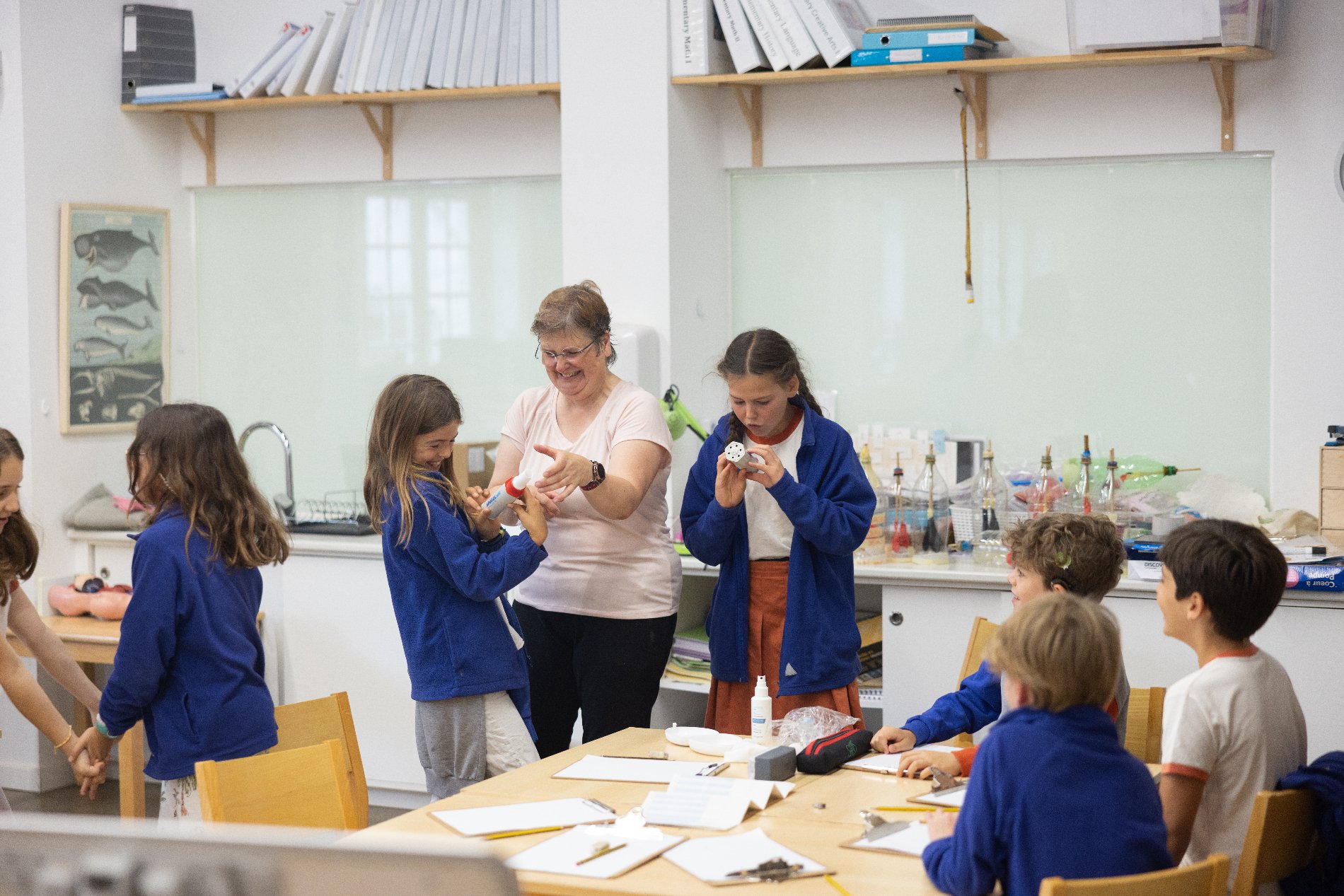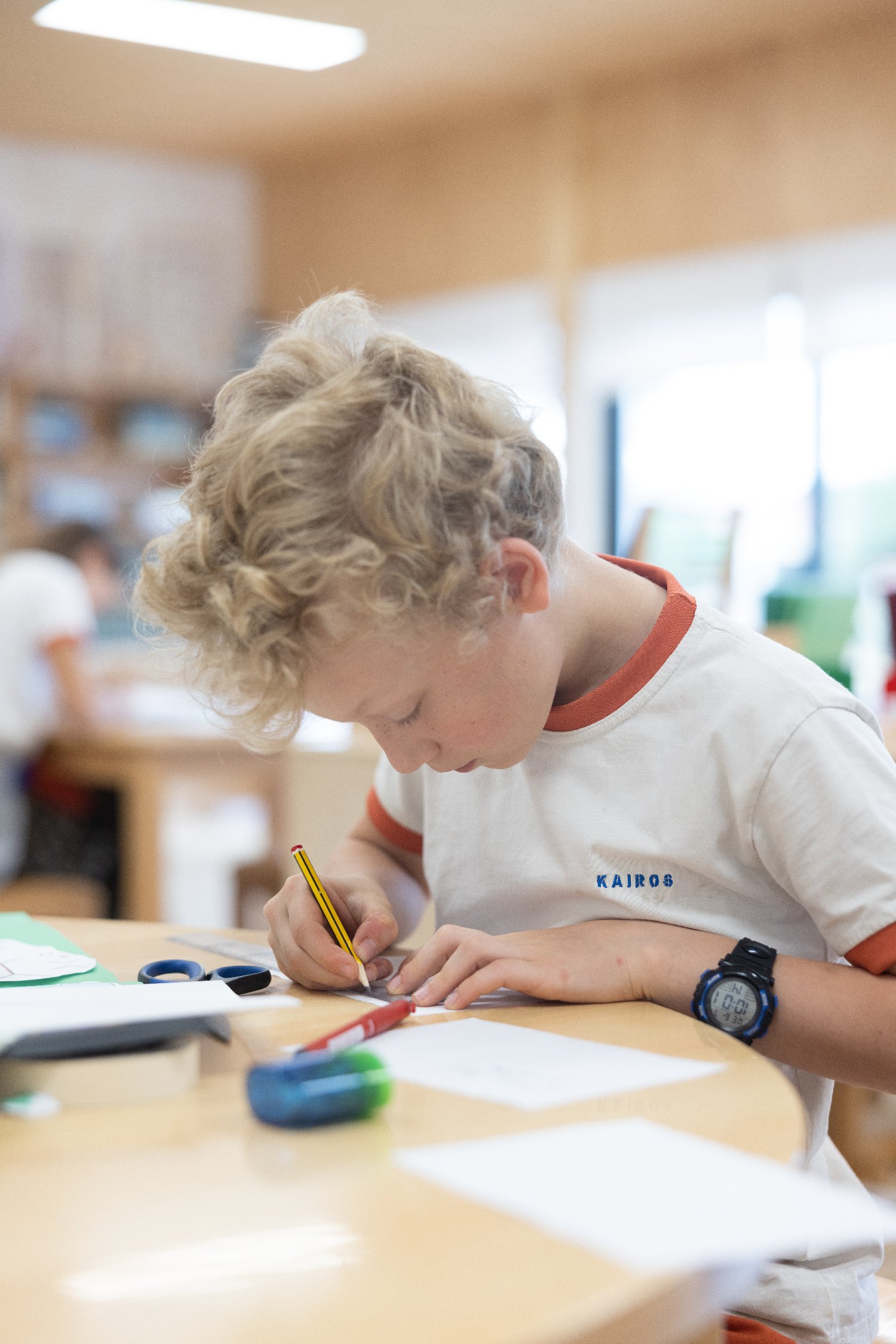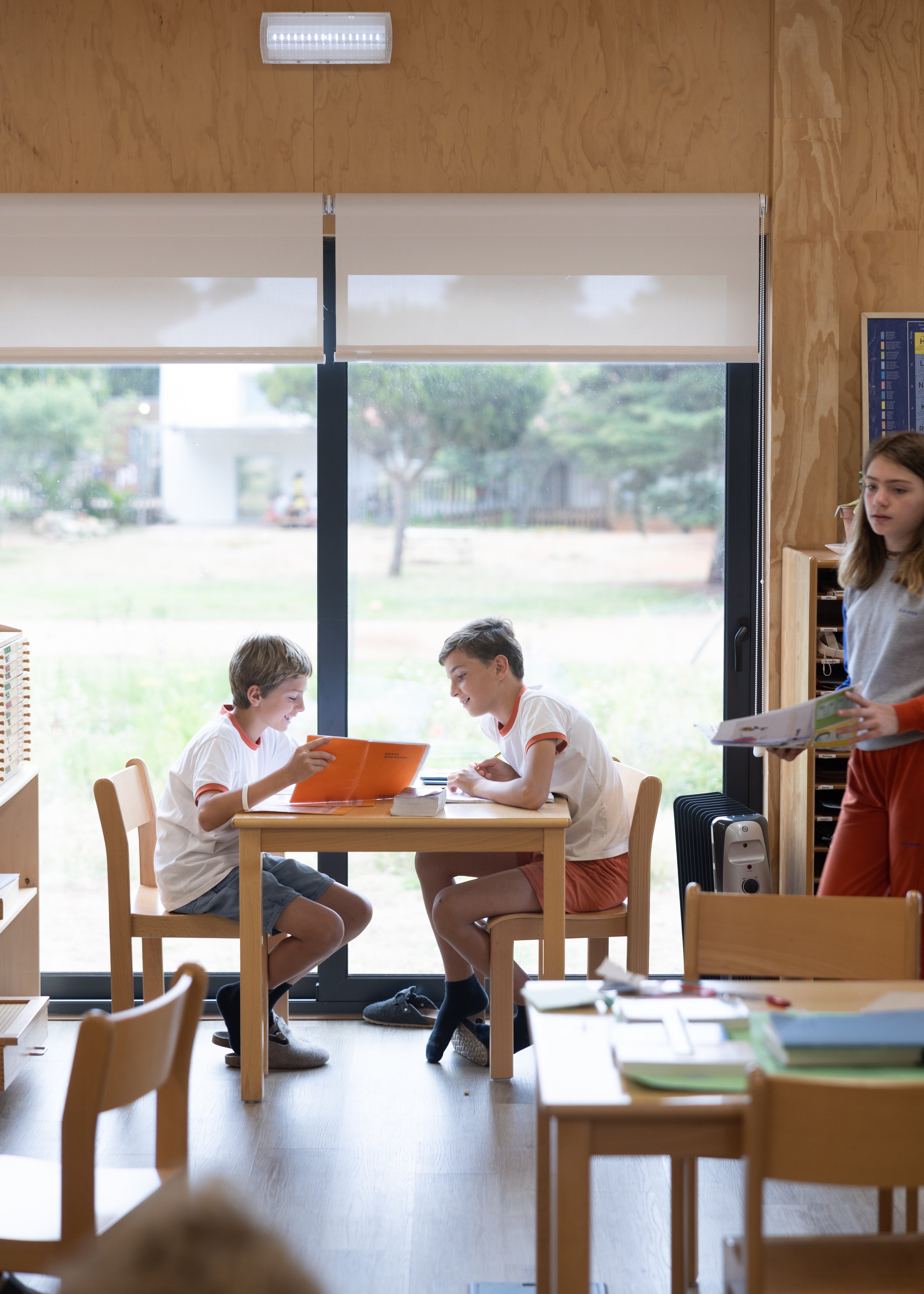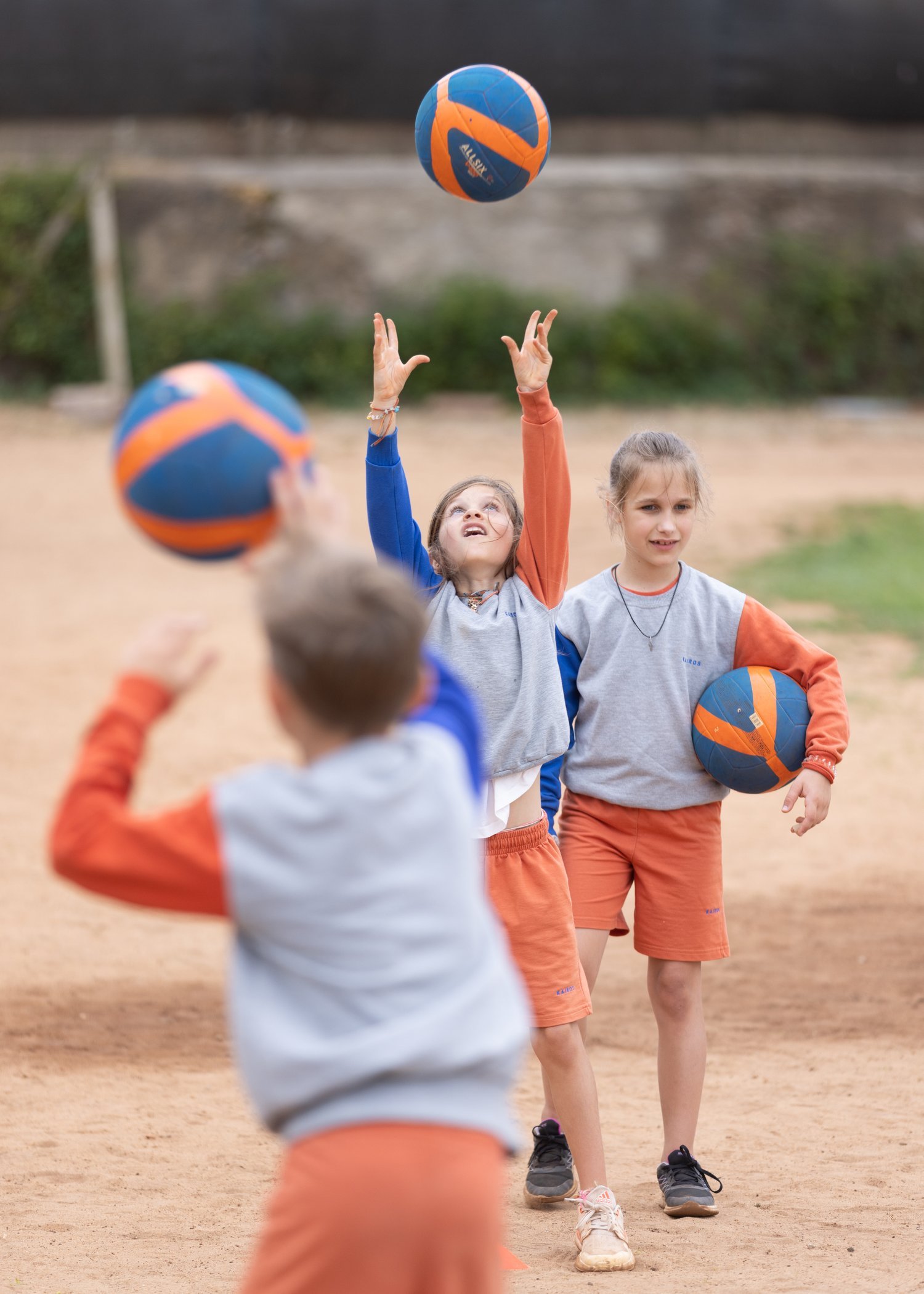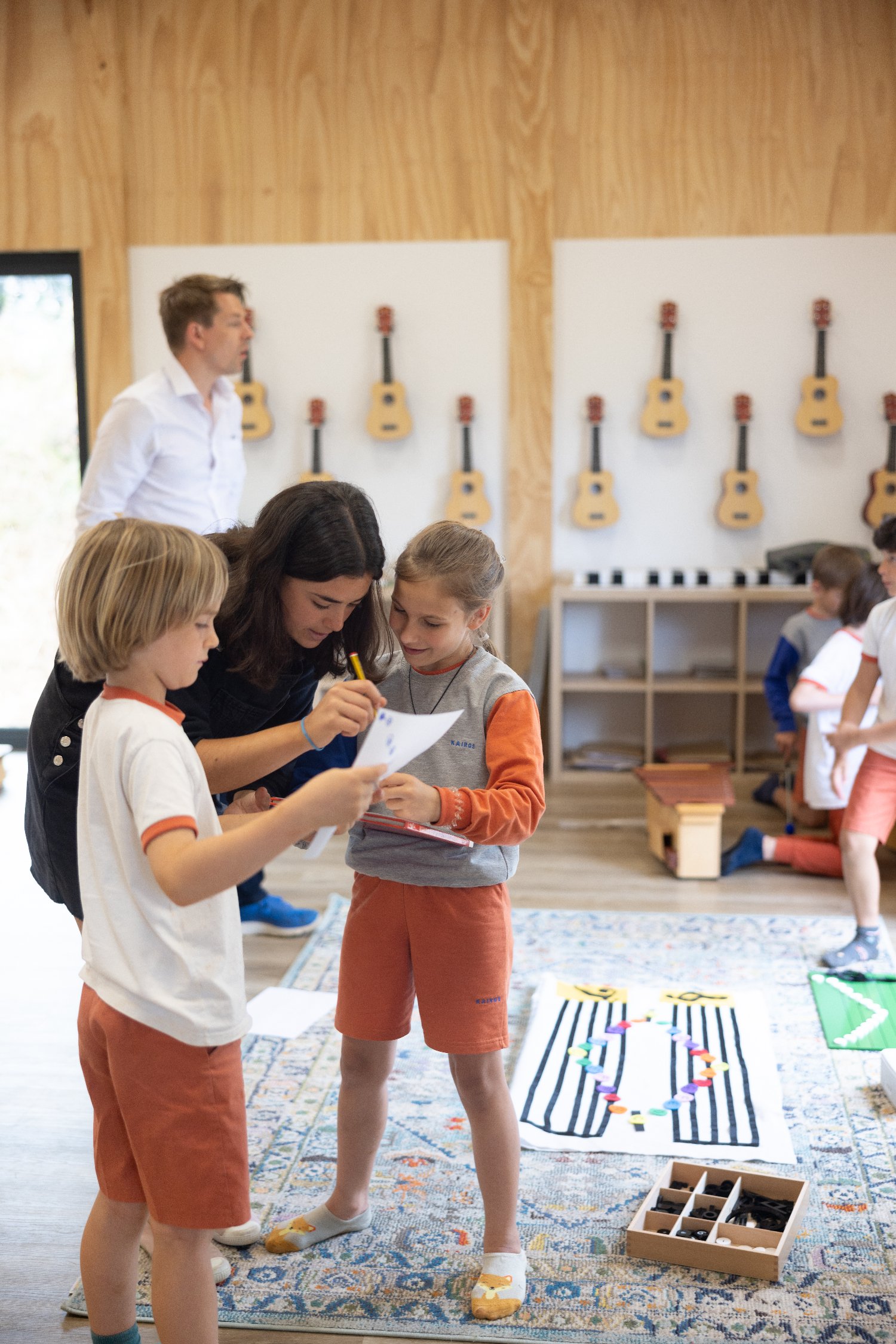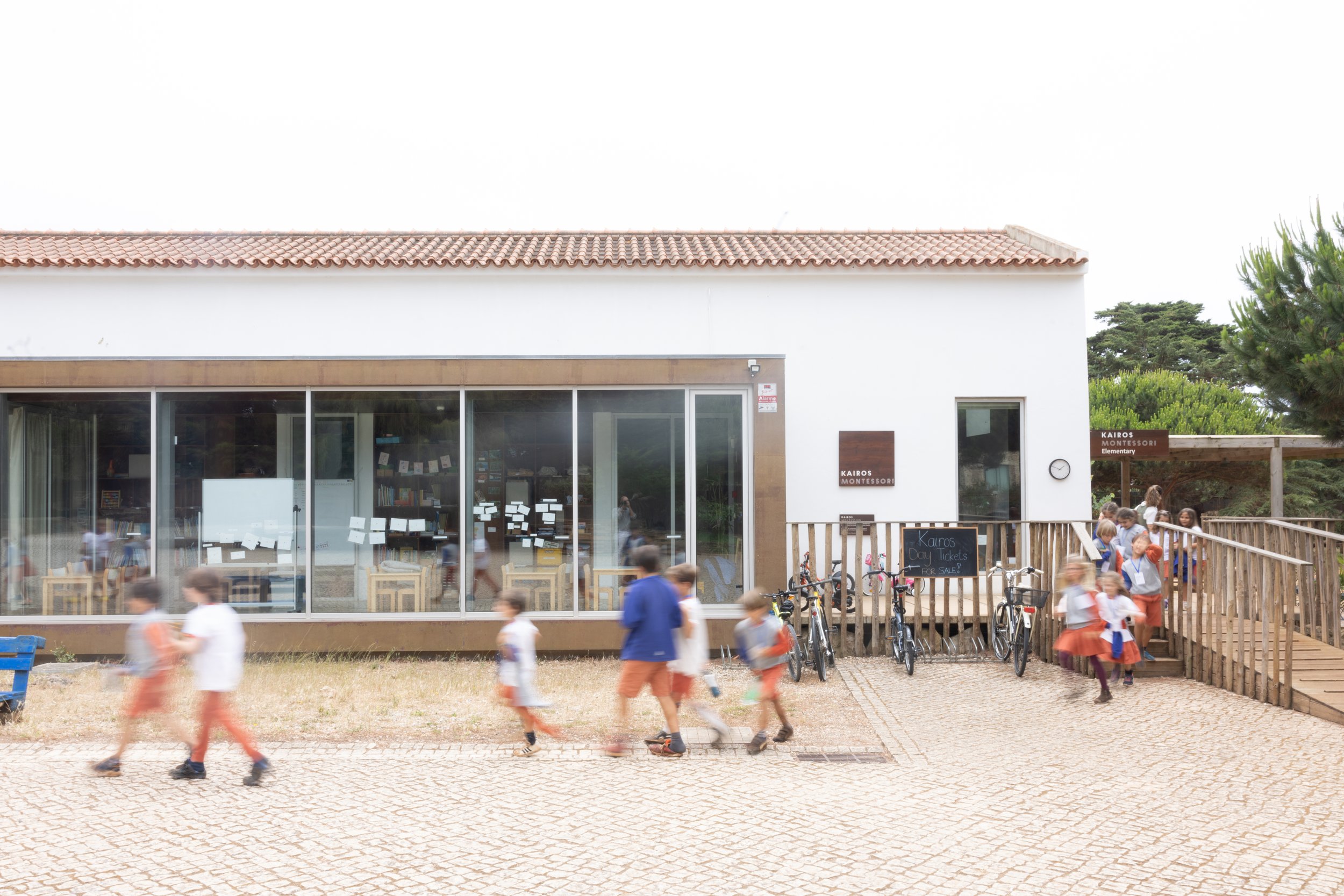
Primary
Kairos is a Cambridge International School and employs the Cambridge International Curriculum.
The Primary-aged child (Year 1 to Year 6) is moving from an understanding of the physical world to an understanding of abstract concepts. Montessori provides diverse and creative passages to abstraction. The prepared environment provides the “keys” of each discipline in a manner that meets the primary child’s needs for inspiration as well as order. Materials in the academic disciplines (including mathematics, grammar, reading, writing, geometry, botany, science, zoology, history and geography) enable the child to not only to learn skills and concepts, but to experience the inherent beauty and order of each of these disciplines.
Montessori’s learning materials and advanced curriculum ensure a solid mastery of basic skills. The Great Lessons provide the child with the opportunity to be an active learner who puts his skills to use as he pursues his desire for meaningful knowledge.
All students partake in English, Portuguese, mathematics, global perspectives, art and design, science, geography, history, religious education, music, performing arts and physical education.
Just as in Early Years, the child in a Montessori primary classroom has the same teacher for three years (split between Lower (ages 6-8) and Upper (9-11) Elementary. This guide is an “enlightened generalist” with knowledge deep enough to know the fascinating details of each of the disciplines and broad enough to connect those details into a “big picture” across the disciplines. The teacher is also fully trained in the principles of child development. A teacher who has a child for three years gains an intimate knowledge of the child, which is seldom possible in a one-year classroom relationship. The teacher is keenly tuned in to the unique personality of each child so can direct each child into areas of natural interest. The children work with specialists in Art, Catechesis of the Good Shepherd, Music, Physical Education and Portuguese.
The Prepared Environment
The Montessori elementary environment balances the child’s developing imagination and powers of abstraction with down-to-earth hands-on materials. Each material has its structured sequences designed to lead to discovery and understanding. The elementary-aged child is moving from an understanding of the physical world to an understanding of abstract concepts. Montessori provides diverse and creative passages to abstraction. The prepared environment provides the “keys” of each discipline in a manner that meets the elementary child’s needs for inspiration as well as order. Materials in the academic disciplines enable the child to not only learn skills and concepts, but to experience the inherent beauty and order of each of these disciplines.
An Integrated Curriculum: Capturing the Imagination and Connecting the Disciplines
Research has shown that engaging the child’s imagination enhances the learning process. Research also indicates that a focus on grand, interconnected concepts facilitates learning. In the Montessori elementary class, an integrated curriculum activates students’ imagination and immerses them in a grand vision of the universe. This is done through the Great Lessons.
The Great Lessons
A series of five stories told in the elementary years, the Great Lessons present broad themes from natural and human history that inspire the child to ask questions; “The Story of the Universe,” “The Story of Life on Earth,” “The Story of Human Beings,” “The Story of Writing,” and “The Story of Numbers.” Within the context of these great themes, the child studies the details of the disciplines of science, mathematics, social studies and language. Because of the unifying thread of the Great Lessons, no subject is studied in isolation from the others. Knowledge is intertwined even though discrete in its parts.
A Sense of Gratitude and Responsibility
The Great Lessons inspire a sense of gratitude in the child. God has provided innumerable gifts through the natural world, through the history of human civilizations and through the history of salvation. Recognizing these, the child’s natural response is one of gratitude for all that we have inherited and a sense of responsibility to contribute to the continuing stream of human progress. The Montessori elementary experience provides the foundations for life commitment through moral and social responsibility.
Going Out: Beyond the Prepared Environment
Because no classroom can contain the answers to all the child’s questions, “going out” is a response to the need to explore beyond the classroom. The “going out” of Montessori elementary children is based on individual or small-group interest in extensions of classroom study. The experiences of learning from new resources and meeting different people present a glimpse of social cooperation and of the role of community services. “Going out” can also be service projects such as visiting the elderly, cleaning up the environment, or holding a food drive for the hungry. These projects build the child’s sense of social purpose and moral responsibility. In addition to individually planned trips that extend classroom studies to the local community, teachers plan outings with our students to our local woods in Quinta da Marinha.
Portuguese
Kairos is very keen to ensure that children have a strong appreciation and understanding of Portuguese culture, history and language. In addition to weekly Portuguese sessions, Physical Education is conducted in Portuguese.

